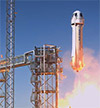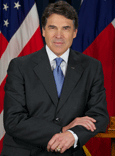Research by ON NUMBERS, crunching U.S. Bureau of Labor Statistics data, found that just four states have not only regained all the jobs they lost to the recession but have actually added employment on top of the baseline. Texas is one, along with Alaska, Louisiana, and North Dakota. The stats show that Texas is now ahead by nearly 140,000 jobs, and boasts a jobless rate that's a full percentage point better than the national average.
So what's up with Texas? For one thing, Texas offers a friendly business environment, according to Larry Gigerich, managing director at Ginovus, a site selection and incentives consulting firm. The state's "excellent business climate has created more opportunities for Texas to compete for projects," he explains.
A similar assessment comes from David Brandon, senior vice president at Site Selection Group in Dallas. "Texas has continued to prosper economically in comparative terms," he says. Like most other places, the state continues to experience some ups and downs, he notes, but its overall trend is good, bolstered by strength in a number of desirable economic sectors, from energy to healthcare to technology.
Strong, Diversified Industrial Sectors "Clearly, one sector with a great tradition in Texas is energy," Brandon says. That in itself is nothing new - after all, they've been drilling for oil there for more than a century now, and the state's refineries are national leaders in both crude production and refining. A major twist that's driving the sector now, though, is new technology opening up oil and natural gas mining within the state's major shale formations. Hydraulic fracturing combined with horizontal drilling is allowing energy companies to tap into deposits that were previously out of reach, and the result is the creation of thousands of Texas jobs. Texas also leads the nation in wind power generation and has the world's two largest wind farms - and it's also prime real estate for solar power generation, with enough solar energy shining on each acre of Texas land every year to equal 800 barrels of oil.
Brandon also sees growth in manufacturing. A lot of cost-sensitive but labor-intensive manufacturing happens along the border with Mexico, but great manufacturing stories are being reported all over. Advanced technology and manufacturing are thriving, led by top-notch research facilities and many thousands of workers experienced in technology disciplines. This, too, is really nothing new - Texas was the birthplace of the integrated circuit back in the late 1950s.
"You'll also find tremendous and continuous growth in health services," Brandon says. The state's biotechnology sector generates an estimated economic impact of $75 billion each year, with thousands of firms working in biotech manufacturing, research, or testing. Additionally, more than 25,000 high-tech firms lead the state to prominence in information and computer technology - including such household names as Dell and Texas Instruments. And, Brandon points out, defense remains a strong sector, too. The state has 15 active military bases plus a continually growing aerospace and aviation sector that provides work for more than 200,000 people.
Gigerich adds more highly active sectors to the list, including corporate offices, financial services, contact centers, and data centers. "I think these sectors will continue to do well, and as the population of the state continues to grow, distribution and logistics will become more important."
The Dallas suburb of Richardson provides a good example of the explosion in data centers and cloud computing. About a dozen data centers are there now, and four or five more are in the works. Across the Dallas area, cloud computing could create as many as 24,000 jobs in the next few years, according to a recent study conducted by IDC.
Gigerich notes that the Lone Star State is gunning for businesses that have historically enjoyed prominence on the West Coast. "Texas has been very aggressive in trying to attract California companies," he says. "In particular, information technology and financial services companies view Texas as a very attractive location for new and/or expanded facilities. In addition, contact centers - due to the bilingual population - and manufacturing have been key sectors looking to expand into Texas."
Texas Success Stories
Positive news headlines have been in rather short supply in many U.S. places, but not so in Texas. Check out a small sampling of the recent job-creating developments that have helped put the state on top of the list of employment growth. What's particularly striking about this list is the diversity of the projects, from automotive to aerospace to energy to customer support.
- In March, Apple Inc. announced plans to double its presence in Austin, pledging a $304 million investment and promising to create as many as 3,600 jobs in customer support, sales, and accounting over the next decade. According to company spokesman Steve Dowling, Apple had less than 1,000 people on its payroll in Austin back in 2004 and had already grown the headcount to 3,500 before the new announcement.
- Automotive supplier Continental Automotive Systems unveiled plans in February for a $113 million investment at its Seguin manufacturing plant. Continental is part of a German company and plans to make automotive sensors there, creating work for about 300.
- A $200 million General Motors stamping facility will create about 180 jobs in Arlington. The plant will turn out SUV components. That January announcement follows a $331 million, 110-job expansion announcement about a year ago at the Arlington Assembly Plant.
- Anadarko Petroleum Corp. is building a 31-story tower at its headquarters in The Woodlands, roughly matching another tower already on the site. According to Brandon, the company has plans to add 450 to its payroll.
- The state's excellent wind-power resources helped it land a $210 million, 150-job commitment from WindData, a renewable energy data company. The company last November announced the five-building data center in Pflugerville - a complex that itself will be powered by the wind.
- Boeing is moving 300 to 400 jobs to a San Antonio facility that handles aircraft maintenance, modification, and support work. Perhaps the best-known plane that will get its maintenance needs met in Texas now is Air Force One.
- Bell Helicopter is pumping $230 million into its corporate campus, revitalizing it and consolidating North Texas facilities. A new headquarters is part of the plan, along with an employee center and a new corporate training facility.
- A $100 million, 750-employee announcement comes from GE Transportation in Fort Worth. The company plans a state-of-the-art locomotive manufacturing plant there. Adjacent to that site, the company announced a similar-sized investment to build a plant to produce electric-drive wheel systems for large off-road vehicles. About 130 jobs are promised through that project.
- Kohl's, the prominent department store chain, picked the Texas community of DeSoto for a massive e-commerce distribution hub. It'll cover about a million square feet and fuel some 400 jobs when it opens.
To these happy headlines, Gigerich adds impressive growth involving Charles Schwab in Austin and Oracle Corp. in Dallas-Fort Worth.





 Greetings:
Greetings: